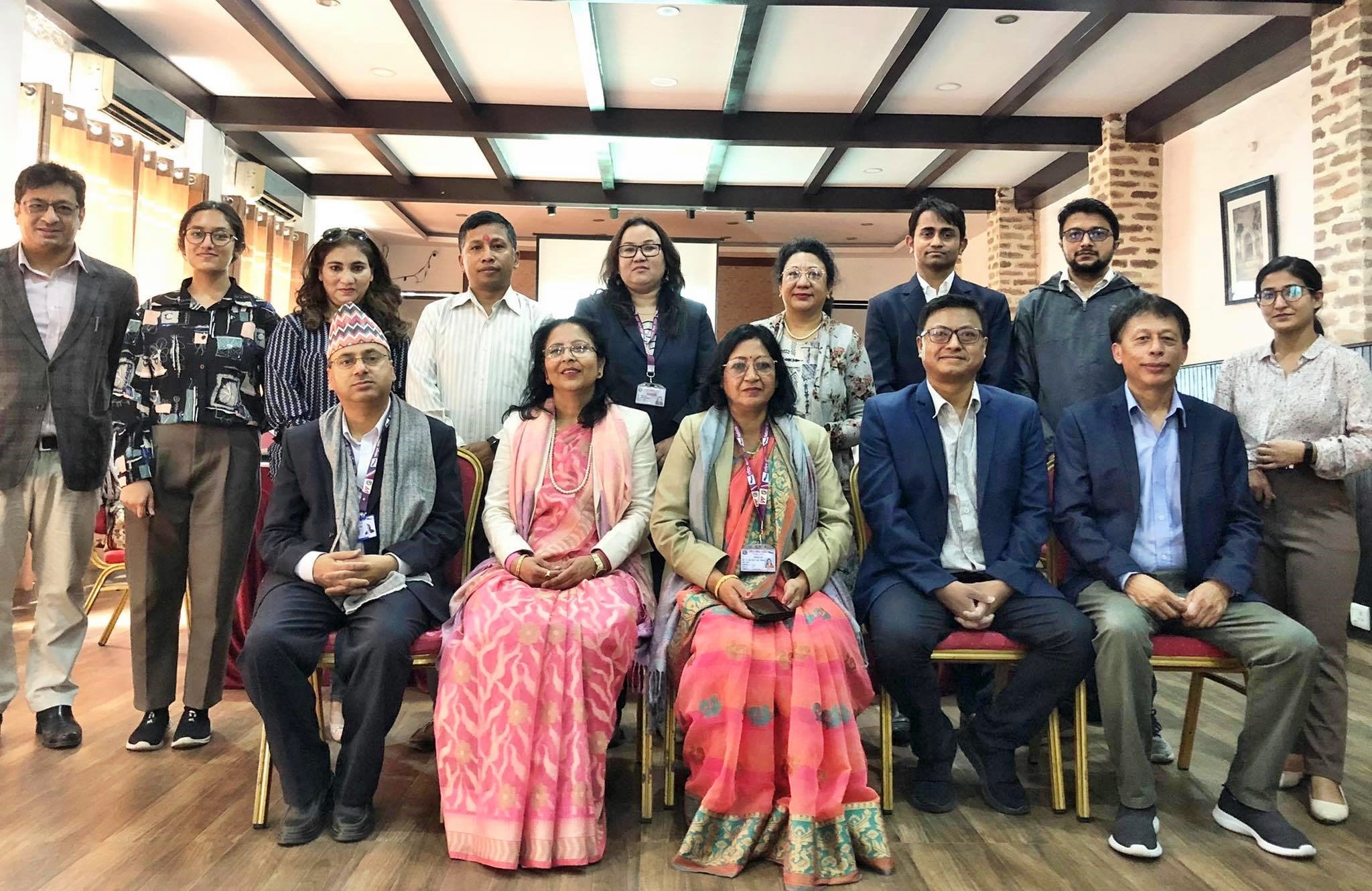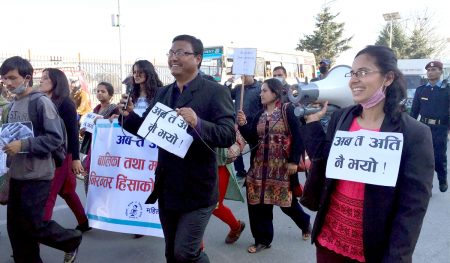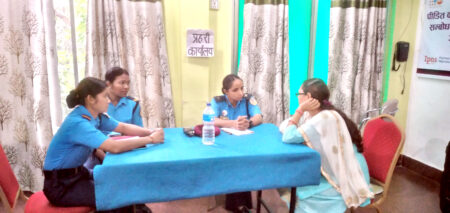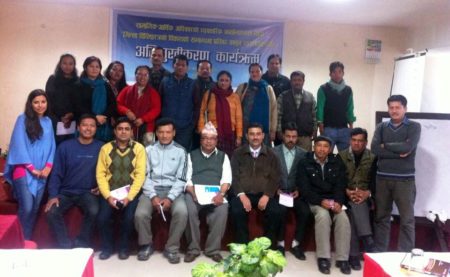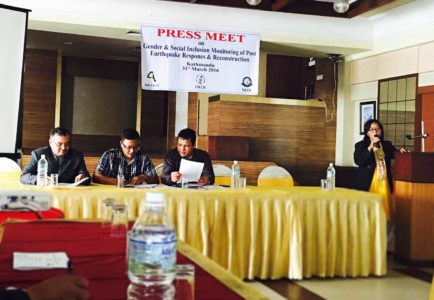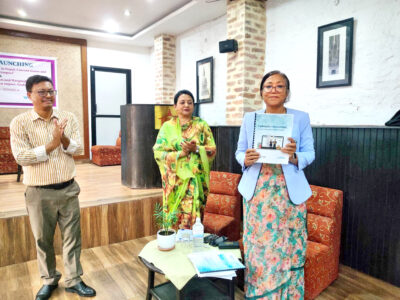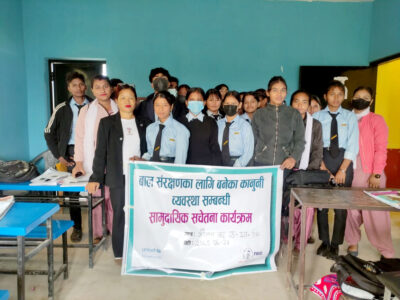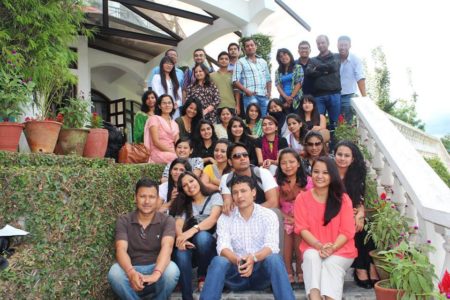The Constitution of Nepal, under Article 38(2) within the “Rights of Women”, guarantees the right to safe motherhood and reproductive health as a fundamental right. To operationalize this constitutional provision, the Government of Nepal enacted the Safe Motherhood and Reproductive Health Rights Act, 2018 (SMRHR Act), which serves as the umbrella legislation governing sexual and reproductive health (SRH) in the country. Likewise, other laws and policies that covers the aspects of SRHR in Nepal are;
- The Public Health Service Act, 2018
- Individual Privacy Act, 2018
- National Penal Code, 2017
- Crime Victim Protection Act, 2018
- Health Insurance Act, 2017
- Labor Act, 2017 and Regulation, 2018
- Local Government Operation Act, 2017
- Rights of Person with Disability Act, 2017
- Contribution Based Social Security Act 2017 and Regulation 2018
- Prison Act, 2022 and Prison Regulation (15th Amendment), 2023
- Safe Abortion Service Program Management Guidelines, 2022
- National Health Policy, 2019
- National Strategy for Reaching the Unreached 2016-2030
- National Strategy to end Gender Biased Sex Selection in Nepal 2021- 2031
- Nepal Safe Motherhood and Newborn Health Road Map 2030
Forum for Women, Law and Development (FWLD) has been actively engaged in multiple initiatives supported by the Center for Reproductive Rights (CRR) and Amplify Change, addressing diverse components of Sexual and Reproductive Health and Rights (SRHR). FWLD’s work spans critical areas such as safe abortion, comprehensive sexuality education, SRHR in disaster and humanitarian contexts, dignified menstruation, safe maternity, and respectful childbirth. FWLD consistently undertakes legal awareness campaigns, legal research and study, policy advocacy, and international engagement. Building on insights from various studies, research initiatives, and case documentation, FWLD has also pursued strategic litigation by filing Public Interest Litigations (PILs) before the Supreme Court of Nepal. These cases, currently under trial, address critical issues such as the implementation of the SMRHR Act and the decriminalization of abortion. FWLD has also been conducting capacity-building workshops, trainings, and orientations for key stakeholders including parliamentarians, civil society actors, media professionals, lawyers, students, and researchers. These efforts aim to strengthen understanding and implementation of SRHR across sectors.
On the international front, FWLD has been advocating for SRHR, contributing to CEDAW and CRC reporting processes, and submitting the papers and reports during the Universal Periodic Review (UPR) to advance Nepal’s commitments to reproductive rights. FWLD also actively participates in global conferences and forums such as the Women Deliver Conference, Pro Bono Conferences, and both pre-sessions and main sessions of the UN Human Rights Council related to SRHR.
In addition to advocacy, FWLD provides pro bono legal services to victims of SRHR violations across Nepal. It has established a Reproductive Health Legal Clinic to provide legal counseling and support to individuals whose reproductive rights have been infringed.
FWLD also serves as the Secretariat of the Reproductive Health Rights Working Group (RHRWG), a coalition comprising lawyers, doctors, nurses, media professionals, human rights defenders, civil society representatives, health workers, and reproductive health experts. The group works collaboratively to advance advocacy efforts and policy reform in the field of sexual and reproductive health.
FWLD has been actively engaged in advancing sexual and reproductive health and rights (SRHR) at the local level, with the aim of strengthening the broader SRHR framework in Nepal. Notably, FWLD provided technical support to Godawari Municipality in Kailali District, facilitating the enactment of Nepal’s first local legislation on SRHR, the Safe Motherhood and Reproductive Health Rights Act, 2025.
More recently, FWLD has expanded its advocacy to include the domain of assisted reproduction, calling for a comprehensive legal framework to regulate its components. This engagement contributed to the Ministry of Health and Population’s issuance of the Standard for the Operation of Infertility Management Services, 2025, a significant policy milestone in reproductive health governance.
